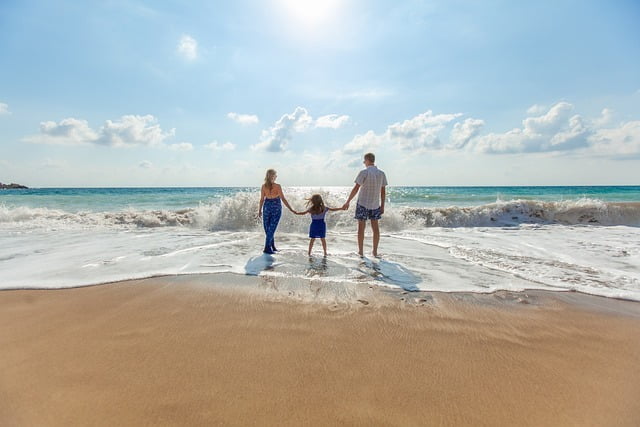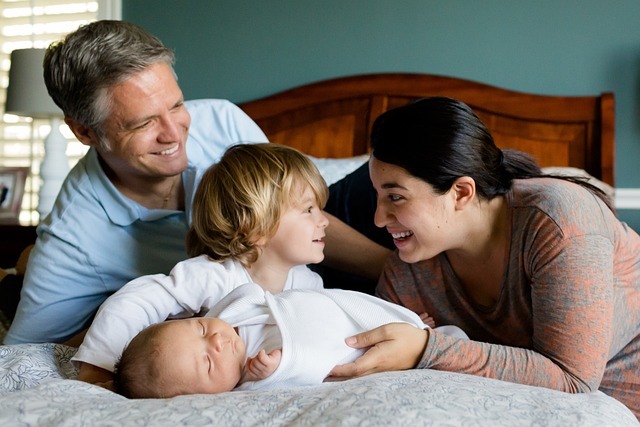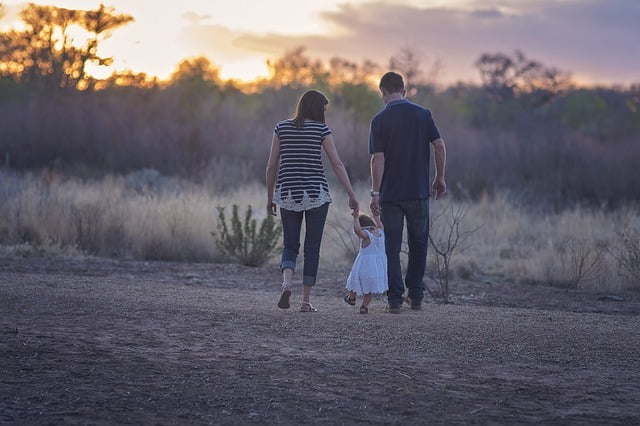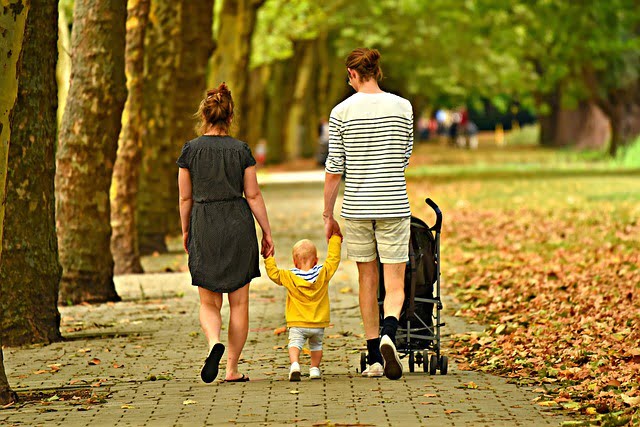Unlock this story — it’s free
In the 80s my parents made a life-changing fundamental decision for our family, which I believe has shaped, molded, and altered the course of who we are as their children. This is opposed to who we would have been had that decision not been taken. It is on this premise that I do believe what we are taught, experience, and live, shape the behaviour, characteristics, personality, and value system we each individually hold today. While I know without a shadow of a doubt some lessons and skills taught to us would have not changed that dramatically, such as our faith and culture. However adding in society, environment, education, community, religion, and leadership influences of others around us, these experiences and their parenting, the people we are today would have been different had that chapter of our lives not happened. Point is, everything we do as parents fundamentally alter our character, whether it is done purposely or not.
In last week’s article, I took an angle on how important parenting is and that it should not be something left to chance, happenstance, or learning as we go along. To recap in a few words, the greatest and most important job and position in the world and society should not be left to an accident or a casual interlude of sexual satisfaction or intoxication. It is from that thought that I continue to write on Relationship Parenting a responsibility that can change the face of social injustice. A topic that a page of lines typed certainly does not do justice. However, I am going to try.

On the 20th of February South Africa has an awareness day called Social Justice awareness day. Social justice is built on the pillars of human rights, equity, participation, and access. When a society is just, everyone is respected, supported, and protected. Achieving social justice isn’t easy as there are many issues that need to be addressed however one that matters the most here is the persons within that makeup that society. I wonder if these social injustices would actually exist if we were humanity-driven humans with moral characteristics and values that looked out for our fellow man and the world in which we live, move, and have our being.
This topic deserves more than just a calendar date, which unfortunately came and went as bleakly and as mundane as any other day in someone’s diary, jotting down a list of goals and actions hoping to achieve an outcome although not quite hitting the mark. However, I digress, back to the 80s. In a time when our country was at the height of apartheid and racial segregation, my parents decided to give up our home and life as we knew it, to live a life that identified with those in poverty, living with the bare essentials. A life of simplicity in a community setting with 60-plus other people around our dinner table at any given time. At the time the group area’s act was scripted and in play. For all intent and purpose, I was born into a working-class, 2 parent, 7-person family, within a suburban lifestyle in a close-knit coloured community. We were to live with all races, denominations, cultures, faiths, and political affiliations. In fact, the whole idea was that this was actually possible and a life of sharing, compassion, and acceptance of other human beings was possible when you took away the labels, filters, discrimination, class, and stereotypes that are imposed on us, through parenting, upbringing, experiences, and schools of thoughts of a society.

We were meant to be a place of refuge, a place of healing, a place to build, a place to grow, and a place to share all that we had with others. And that became the bedrock of informing the adults we are today. Now most naturally this experience was no bed of roses and it was a very challenging and confusing time in our lives as children. Why on earth could we not have a TV? Why could we not eat meat? Why must I sit at a dinner table with so many people every day who weren’t my family? Why could I not have smart clothes like my friends, the latest takkie, or the nice pair of jeans that was not a hand-me-down or a donation? It must have been harder for my brothers who at the time were teens, as opposed to my sister who was still a toddler, and myself a prepubescent tween.
Looking back, I wonder how would I have turned out to be had it not been for the behaviour and choices of my parents and the decisions that influenced their parenting that has shaped me today. The point I am trying to get across is that as parents we have the power to shape a family, a community, a society, and a generation, right through to the possibility of a united existence across humanity and the world, simply by what we teach our children, and what we expose them to. This experience gave me the tools to identify with all people, to solve problems by communicating, and to simply see a person and not their colour, wealth, or political afflictions. Today I pride myself on my emotional intelligence and my ability to empathize with others.

As a parent, we have the power to change and alter history simply by the identities and values we mold into our children. Simply by the emotional and cognitive importance we place on teaching them the importance between right and wrong. The choices of going through life blaming or changing, standing up or staying down, reaching out to others or living selfishly for one’s self, having compassion vs entitlement, breaking or building, giving or taking, sharing or wasting, repairing or destroying. All these characteristics feed straight from our very first teachers, our parents, our very first influence-rs, our parents, our very first followers, and our parents. Before the world can get its hands on us and mess with our minds and emotions, through trauma, crisis, and abuse we have relationship parenting. Now I am not saying I am a model citizen destined for an easy walk through the pearly gates of heaven one day. What I am hoping to relay is that what if we looked to the importance of our role as parents to irradiate injustice, social ill, and a degrading society with a plundering mentality of give me, give me, give me. At the end of it all, the person that runs a country is someone’s child, the person that pushes and pulls the trigger is someone’s child, the person that looks the other way when someone needs help is someone’s child, the person that is raping, murdering, abusing, killing, destroying and starving another is someone’s child.
Parents play a crucial role in their children’s lives. Be it shaping their children’s attitude, mindset, views on life, their physical and psychological health, the methods of parenting are of great impact and importance towards a child’s long-term development. This is because, from the day a child is born, the very first people that learn and adapt their behaviours are none other than their parents. That’s also why children tend to imitate and mirror their parents’ attitudes and behaviors, as parents are a child’s first teachers.
In my previous marriage, my ex-husband and I had two children each. Together we were a family of six in an interracial and intercultural setting. One night I walked out of my bedroom in tears, having had to sit through hours of belittling, vulgar language, and a tyrant outburst of epic proportions. We were behind closed doors and it was after all past bedtime so I took all that was thrown at me, as long as I got through it all, the children were protected from it. Only to walk out and find my little man sitting at my bedroom door crying his heart out in silence, he asks “Mom are you okay – did you do something wrong?”. Seeing him like that brought me to my senses that while I may be teaching them respect, love, and compassion for each other, the value of a good character, or the strength in a family that does not have to be biological… we were not living it. This behaviour was not a cycle that needed to continue or imposed on them as acceptable, It was at that moment that I realized, actions and words are not to be lived separately and in isolation from each other. If you want peace, you need to live it, not just say it. If you want poverty to change, you have to live a life of equality and equal access to resources and food security. If you want the world to be here for generations to come, then saying so is not going to cut it, but actually taking care of the world we have now is. If we want people not to be angry and hateful then we need to actually live the rights of our constitution, that of our country, and that of the world over. We cannot say we want communities that are thriving and strong when a difference of 10 km to access water, electricity, and basic sanitation separates us. The thing is, at the back of all these rules, regulations, policies, etc is the human element, a person who has to implement it, live it, and action it. A person whose character and identity lie within the teaching of right and wrong. A person makes choices, acts, and shapes our society through words, deeds, and leadership. A person who once was a child must choose to be good, to be bad, to be indifferent. Characteristics of a developing child into a functioning adult in our society. And it all starts at the beginning, with the parent and home. We come into the world with a blank slate. A mind is free of filters, subjection, and discrimination.

I marvel at my sons, there are days when I see their father in them in so many ways, in their mannerisms, their body language, and their facial expressions in a mood expressed even though they grew up with me – Nature vs Nurture. There is clear evidence that parents can and do influence children. There is equally clear evidence that children’s genetic makeup affects their own behavioural characteristics, and also influences the way they are treated by their parents.
In pursuing the answers, the broad forces of nature and nurture, and the interplay between them, have been of central concern. It has been equally obvious that children are learning many things through their daily experiences in interacting with the physical and social world, and that what is learned is not encoded in the genes. A new generation may need to adapt to conditions that the parent generation did not face. And the transmission of values, even when they continue to be appropriate for succeeding generations, is not always successful. We face a world that is far different from our ancestor’s world. But we have the potential to understand and solve the problems of today, many of which are man-made if we first understand who we are, and how the past has made us. We must know what is unchanging about human nature, and recognize what we can and must consciously change to ensure the future for ourselves and our planet.
Parents have a big influence on their child’s behaviour and personality. This is because children are still learning how to behave, how to think, and what is right and what is wrong. Parents are an important part of this process because they teach their children the things that they need to know in order for them to grow up into well-adjusted adults. The idea that “as the twig is bent, so grows the tree” can be traced at least as far back as Greek and Biblical times—(probably earlier), and in most societies parents are the ones assigned primary responsibility for “bending” the children in desirable directions, by supervising, teaching, and disciplining them as they grow up.
The parent-child relationship does not occur in isolation. Sociocultural characteristics, including economic hardship, religion, politics, neighborhoods, schools, and social support, can also influence parenting. Parents who experience financial hardship tend to be more easily frustrated, depressed, and sad, and these emotional characteristics can affect their parenting skills. Culture can also impact parenting behaviour in fundamental ways. Although promoting the development of skills necessary to function effectively in one’s community, to the best of one’s abilities, is a universal goal of parenting.(Acknowledgement of text extracts and reference to Childhood Education International)
Young children are our most vulnerable citizens, yet throughout the world, they are exposed directly or indirectly to different levels of violence, poverty, emotional instability, political upheaval, food, and medical insecurity, and shifting narratives about how the world functions. Children learn from us, so it is important that we understand who we are in order to help support children’s views of themselves. If children know who they are, know what they believe, and have an inner sense of ethics and values, they can make good decisions today and in the future. We all continue to grow and discover and expand our understanding of who we are, especially as life events change how we understand ourselves and our identities. Helping children with their identity development will give them a secure sense of self that will help them now and in the future. The great reward is a world where children grow up to respect themselves and each other and succeed together and move forward as emphatic and compassionate people who can stand alone and stand together. That is my wish and my hope for humanity, my hope for parenting.
Tessa Green
Relationship and Behavioural Therapist
From Bedroom to Boardroom and all relationships in-between














